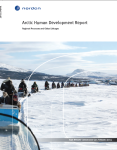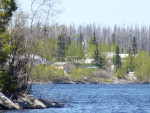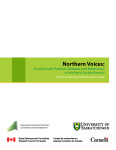About Greg
Greg M. Poelzer
Executive Chair, ICNGD and Fulbright Arctic Initiative Scholar
Dr. Greg Poelzer is a Professor in the School of Environment and Sustainability (SENS) at the University of Saskatchewan. He the Co-Lead of the Fulbright Arctic Initiative III program. He is the Co-Director of a multi-million dollar SSHRC Partnership Grant (2019-2026), Community Appropriate Sustainable Energy Security (CASES), which spans 17 Indigenous and Northern communities across Canada, Alaska, Norway, and Sweden. He also is the Lead of the Renewable Energy in Remote and Indigenous Communities Flagship Initiative at the University of Saskatchewan and Lead of the UArctic Thematic Network on Renewable Energy. For over twenty-five years, Greg Poelzer has engaged in research focused on comparative politics and policy as it relates to Indigenous-relations; energy and resource development; capacity-building in the North. He has written extensively on the historical and contemporary aspects of communities located in the circumpolar north and the Canadian sub-arctic, focusing on Indigenous development, the development of the mining and energy sector. His previous works have examined community engagement in environmental assessment for resource development; strategic environmental assessments for Arctic offshore energy planning and development; and Aboriginal political culture in Northern Saskatchewan. Greg’s first book, Arctic Front: Defending Canada in the Far North (2008), was awarded (with his co-authors) the Donner Prize for excellence and innovation in Canadian public policy writing. His second co-authored book, From Treaty Peoples to Treaty Nation: A Road Map for All Canadians, focuses on Aboriginal success stories and approaches to improved Aboriginal-state relationships, was published in 2015, and shortlisted for three book awards. In addition, Dr. Poelzer was the founding director of the International Centre for Northern Governance and Development (ICNGD), and former Dean of Undergraduate Studies at the University of the Arctic (2003-2008).














